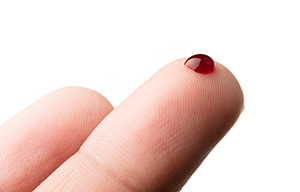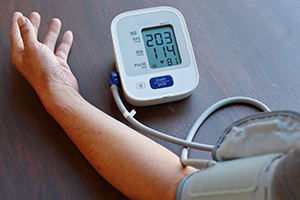November 2023 News Roundup
This month: ASCVD wake-up call for women, teams tackle BP lowering, news from TCT and AHA, and more.

Every month, Section Editor L.A. McKeown curates a roundup of recent news tidbits from journals and medical meetings around the globe.
Cardiac arrest occurs in approximately three per 10,000 surgeries requiring anesthesia, according to a large study of patients from hospitals in the United Kingdom. Compared with patients who did not have a cardiac arrest, those who did were more often male, over age 75, and undergoing emergency or complex surgery, the researchers write in Anaesthesia. At highest risk were those undergoing cardiac surgery, cardiology procedures requiring anesthetic care, and vascular surgery.
Researchers in Sweden have created what they say is the first blood test that enables simultaneous testing for 21 cardiovascular biomarkers reflecting a range of disease processes. Reporting in PLOS One, they say the experimental instrument, known as CVD-21, requires only a single drop of blood and was created from samples of over 10,000 patients.
 Although the prediction of acute kidney injury (AKI) after PCI has traditionally relied on race-based estimates of glomerular filtration rate (GFR), new data suggest that the process actually produces more accurate results for Black patients when their race isn’t incorporated into the GFR math. Published in JACC: Cardiovascular Interventions, the analysis of National Cardiovascular Data Registry CathPCI data found that race-agnostic models reclassified 6% of Black patients into higher-risk categories.
Although the prediction of acute kidney injury (AKI) after PCI has traditionally relied on race-based estimates of glomerular filtration rate (GFR), new data suggest that the process actually produces more accurate results for Black patients when their race isn’t incorporated into the GFR math. Published in JACC: Cardiovascular Interventions, the analysis of National Cardiovascular Data Registry CathPCI data found that race-agnostic models reclassified 6% of Black patients into higher-risk categories.
The European Atherosclerosis Society says the current unacceptably high burden of atherosclerotic cardiovascular disease (ASCVD) in women is a wake-up call to identify and treat modifiable CV risk factors earlier, especially for sex-specific conditions. Published in the European Heart Journal, a new position statement outlines areas where action is needed “to change the perception of risk, assess and treat elevated risk factors early, and address gaps in the management and understanding of cardiovascular risk in women.”
 Only about 30% of adults have had a conversation with their healthcare professional about the potential impact of certain over-the-counter pain relievers on blood pressure, according to results from a poll of nearly 3,000 people commissioned by the American Heart Association. Among patients with hypertension, those who were white or Asian were far less likely than Black and Hispanic patients to report ever having the discussion.
Only about 30% of adults have had a conversation with their healthcare professional about the potential impact of certain over-the-counter pain relievers on blood pressure, according to results from a poll of nearly 3,000 people commissioned by the American Heart Association. Among patients with hypertension, those who were white or Asian were far less likely than Black and Hispanic patients to report ever having the discussion.
Women who develop cardiogenic shock are more likely to die, face more vascular complications, and are less likely to be offered invasive hemodynamics and advanced therapies. The data, from one of the largest analyses to date looking at cardiogenic shock by gender, were presented as an oral abstract at TCT 2023.
Polygenic risk scores could help identify individuals with a genetic susceptibility to hypertension, potentially allowing for earlier intervention that could reduce how long people are exposed to elevated blood pressure, according to a study that tested the scores’ utility in children and adults. Writing in the European Journal of Preventive Cardiology, the researchers say the findings highlight the importance of hypertension management across the genetic risk spectrum.
 A team-based approach that includes home blood-pressure monitoring and employs nurses, pharmacists, or medical assistants to coach patients about lifestyle modification and medication adherence is more effective than usual care in lowering hypertension in low-income patients, according to a study from Tulane University that was presented at the recent American Heart Association Scientific Sessions.
A team-based approach that includes home blood-pressure monitoring and employs nurses, pharmacists, or medical assistants to coach patients about lifestyle modification and medication adherence is more effective than usual care in lowering hypertension in low-income patients, according to a study from Tulane University that was presented at the recent American Heart Association Scientific Sessions.
- AHA For LGBTQ+ Patients With Heart Failure, EMR Details Often Absent
- ‘Smoldering Epidemic’ of CVD Risk Factors in Middle-Aged Adults
- No Adverse CV Effects of COVID-19 Vaccination Seen in Elite US Athletes
- Higher 5-Year Risk of Death With MINOCA vs Obstructive STEMI
- AHA Seeing Sticker Price for HFrEF Meds Opens Door to Discussions
L.A. McKeown is a Senior Medical Journalist for TCTMD, the Section Editor of CV Team Forum, and Senior Medical…
Read Full Bio


Comments